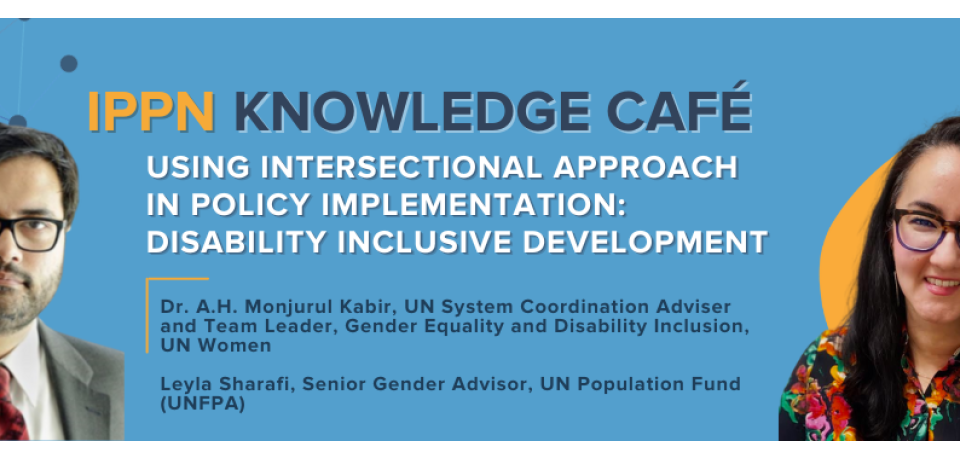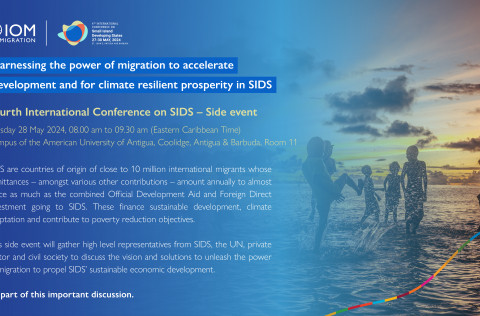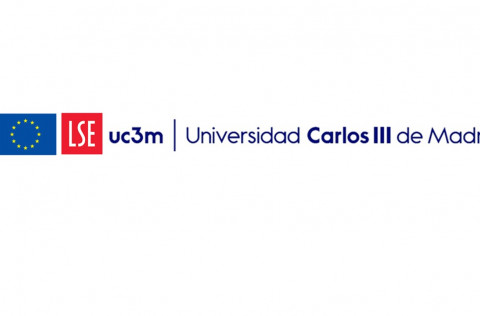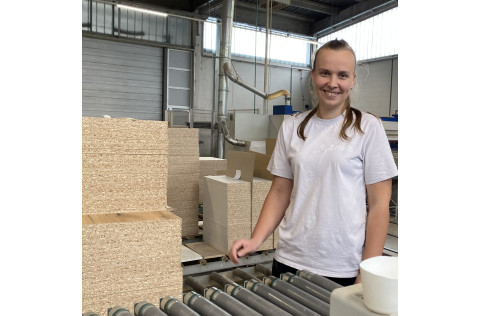IPPN Knowledge Café: Using Intersectional Approach in Policy
About this webinar
The consequences of the interaction of multiple and intersecting forms of discrimination are often considered to be separate and mutually exclusive forms of discrimination. However, the interaction of multiple identities and the resulting discrimination is highly contextual and varies across contexts.
Existing evidence on intersectional discrimination indicates that as a consequence of multiple identities some persons with disabilities are pushed to the extreme margins and experience compounded forms of discrimination. There is a need to use an intersectional approach in the development, implementation and evaluation of policies and programmes; advocacy; intergovernmental processes; and data collection to identify effective ways to empower persons with disabilities in all their diversity, particularly within the context of the 2030 Agenda for Sustainable Development and its resolve to leave no one behind.
Co-organized by several UN agencies (UN Women, UNICEF, and UNFPA), this session will contribute to an understanding of intersectionality that bridges the gap between theory and practice and present tools for practitioners to use. The discussion will explore how disability, gender, age, etc. intersect and impact individuals, discuss challenges and opportunities for the inclusion of persons with disabilities and share recommendations on how to operationalize intersectional lenses in disability inclusion programmes and policies, presenting some of the insights from the Intersectionality Resource Guide and Toolkit.
Agenda
This discussion will be hosted by Sreerupa Mitra, Disability Inclusion Manager, Culture and Diversity Team, UN Children's Fund (UNICEF) and will present concrete experiences from the following keynote speakers:
- Dr. A.H. Monjurul Kabir, UN System Coordination Adviser and Team Leader, Gender Equality and Disability Inclusion, UN Entity for Gender Equality and the Empowerment of Women (UN Women)
- Leyla Sharafi, Senior Gender Advisor, UN Population Fund (UNFPA)
Comments from the floor will be provided by representatives from UN Country Teams, including from:
- Lola Valladares, National Officer on Gender, Interculturality and Human Rights, UNFPA Ecuador
- Nighina Azizov, Programme Analyst on Elimination of Violence Against Women, UN Women Moldova
- Julia Braunmiller, Private Sector Development Specialist, Women, Business and the Law Project, World Bank Group
This will be followed by a Q&A and exchanges with the audience!
Note: The event will be held in English. International Sign (IS) interpretation and CART services will be provided.



